
[100 Working Code] C Strcpy in C C Programming C Tutorial Wikitechy
Syntax. #include
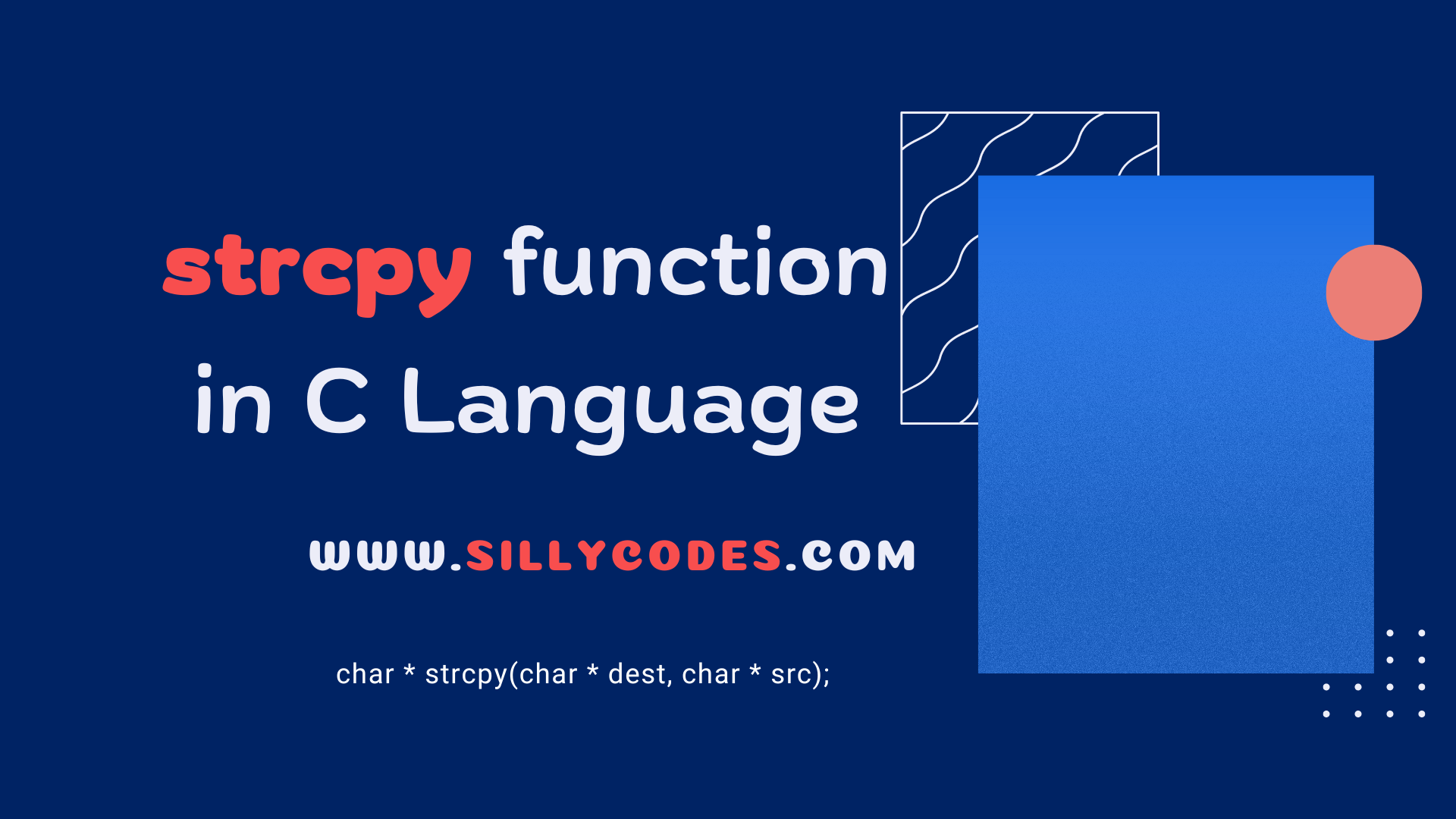
strcpy in C Language String Library Function SillyCodes
Technical Specifications Symbol index [edit] Strings library Byte strings Multibyte strings [edit] Null-terminated byte strings Conversions to and from numeric formats strcpy_s memset_explicit memcpy_s
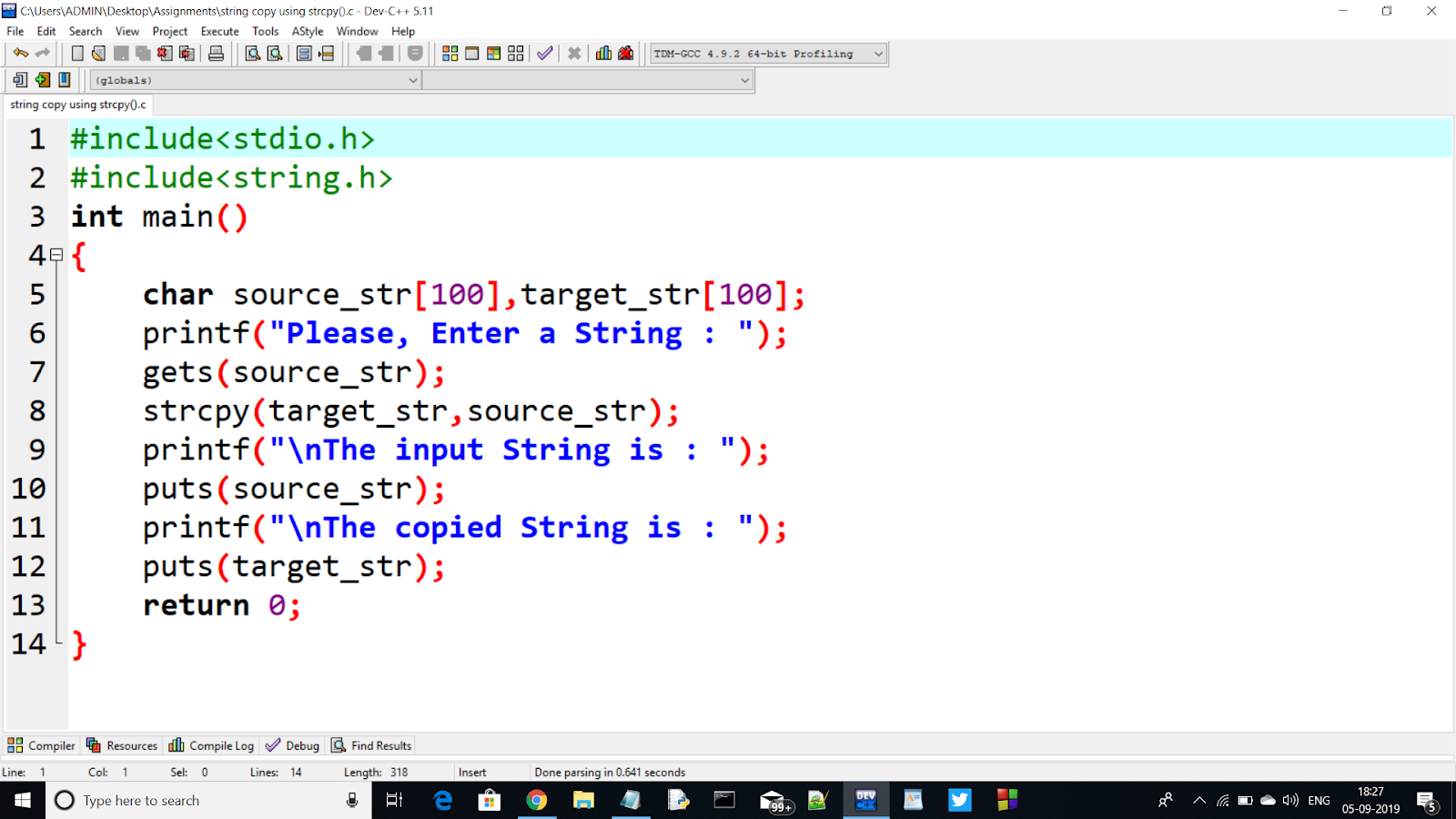
salatalık takdire değer konsey string copy function in c
Copies the C string pointed by source into the array pointed by destination, including the terminating null character (and stopping at that point). To avoid overflows, the size of the array pointed by destination shall be long enough to contain the same C string as source (including the terminating null character), and should not overlap in memory with source.

How to copy address and value of variable using pointer in c programming... Educational
strcpy. Syntax: #include
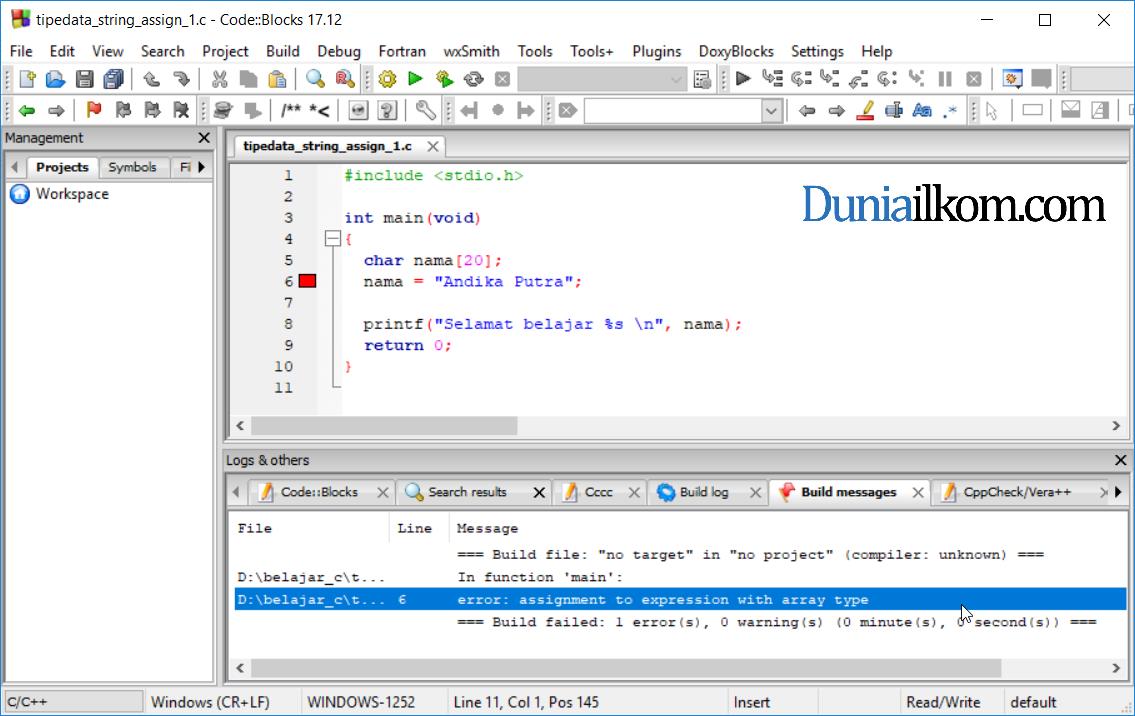
How To Use Strcpy In Dev C++ poweruplead
C strcpy () and strncpy () : Function Prototype. char *strcpy ( char *str1, const char *str2) char *strncpy ( char *str1, const char *str2, size_t n) str1 = destination string or character array. str2 = source string. The strcpy function copies string str2 into array str1 and returns the value of str1. On the other hand, strncpy copies the n.

copy string using strcpy library function YouTube
Dönüş değeri. Strcpy () fonksiyonu dest parametre değerini geri döndürür. Strcpy_s () fonksiyonu başarı durumunda 0 değerini, hata durumunda sıfır olmayan değer geri döndürür. Hata durumunda ayrıca, dest NULL bir işaretçi değilse veya destsz sıfır değilse veya RSIZE_MAX değerinden büyük değil ise, dest [0] adresine 0.

Strcpy() Function in C Coding Ninjas
Practice INTRODUCTION: strcpy is a C standard library function that copies a string from one location to another. It is defined in the string.h header file. The function takes two arguments: a destination buffer where the copied string will be stored, and a source string that will be copied.

[Lenguaje C] Cadena C (método de representación strcpy strcat strlen strcmp
The strcpy () function copies the string pointed by source (including the null character) to the destination. The strcpy () function also returns the copied string. The strcpy () function is defined in the string.h header file. Example: C strcpy ()

How to use strcpy vs strncpy
The C programming language offers a library function called strcpy, defined in the string.h header file, that allows null-terminated memory blocks to be copied from one location to another.Since strings in C are not first-class data types and are implemented instead as contiguous blocks of bytes in memory, strcpy will effectively copy strings given two pointers to blocks of allocated memory.

how to use strcpy in c if else if Statements In C program of calculating grade using strcpy
strcpy : 2.parametre ile gösterilen karakter dizisini 1.parametre ile gösterilen karakter dizisinin yerine kopyalar.strncpy : 2.parametre ile gösterilen kara.

salatalık takdire değer konsey string copy function in c
The strcpy () function is used to copy strings. It copies string pointed to by source into the destination. This function accepts two arguments of type pointer to char or array of characters and returns a pointer to the first string i.e destination.
strcpy 快懂百科
Copies the string pointed to by str2 to str1. Copies up to and including the null character of str2. If str1 and str2 overlap the behavior is undefined. Returns the argument str1. 2.14.13 strcpy Declaration: char *strcpy (char *str1, const char *str2); Copies the string pointed to by str2 to str1. Copies up to and including the null.

C strcpy() Scaler Topics
stpcpy () strcpy () These functions copy the string pointed to by src, into a string at the buffer pointed to by dst. The programmer is responsible for allocating a destination buffer large enough, that is, strlen (src) + 1. For the difference between the two functions, see RETURN VALUE. strcat () This function catenates the string pointed to.
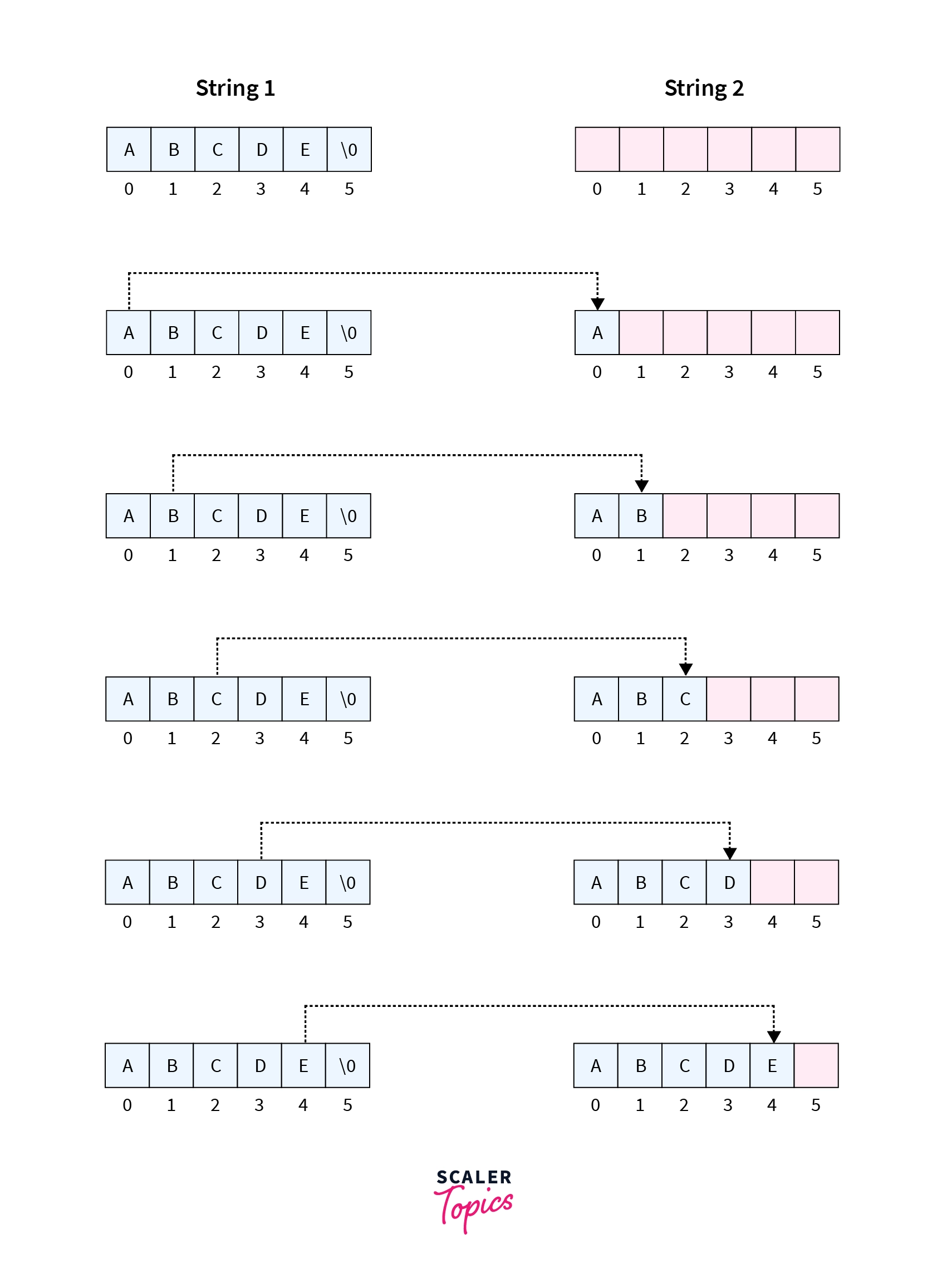
C strcpy() Scaler Topics
strcat ( strcpy (d, s1), s2); To perform the concatenation, one pass over s1 and one pass over s2 is all that is necessary in addition to the corresponding pass over d that happens at the same time, but the call above makes two passes over s1. Let's break up the calls into two statements. char *d1 = strcpy (d, s1); // pass 1 over s1 strcat (d1.

strcpy and strncpy C Functions Syntax, Examples & Security Best Practices Sternum IoT
The prototype of strcpy () as defined in the cstring header file is: The strcpy () function copies the C-string pointed to by src to the memory location pointed to by dest. The null terminating character '\0' is also copied. src is of const char* type. The const keyword ensures that the C-string pointed to by src cannot be modified by strcpy.
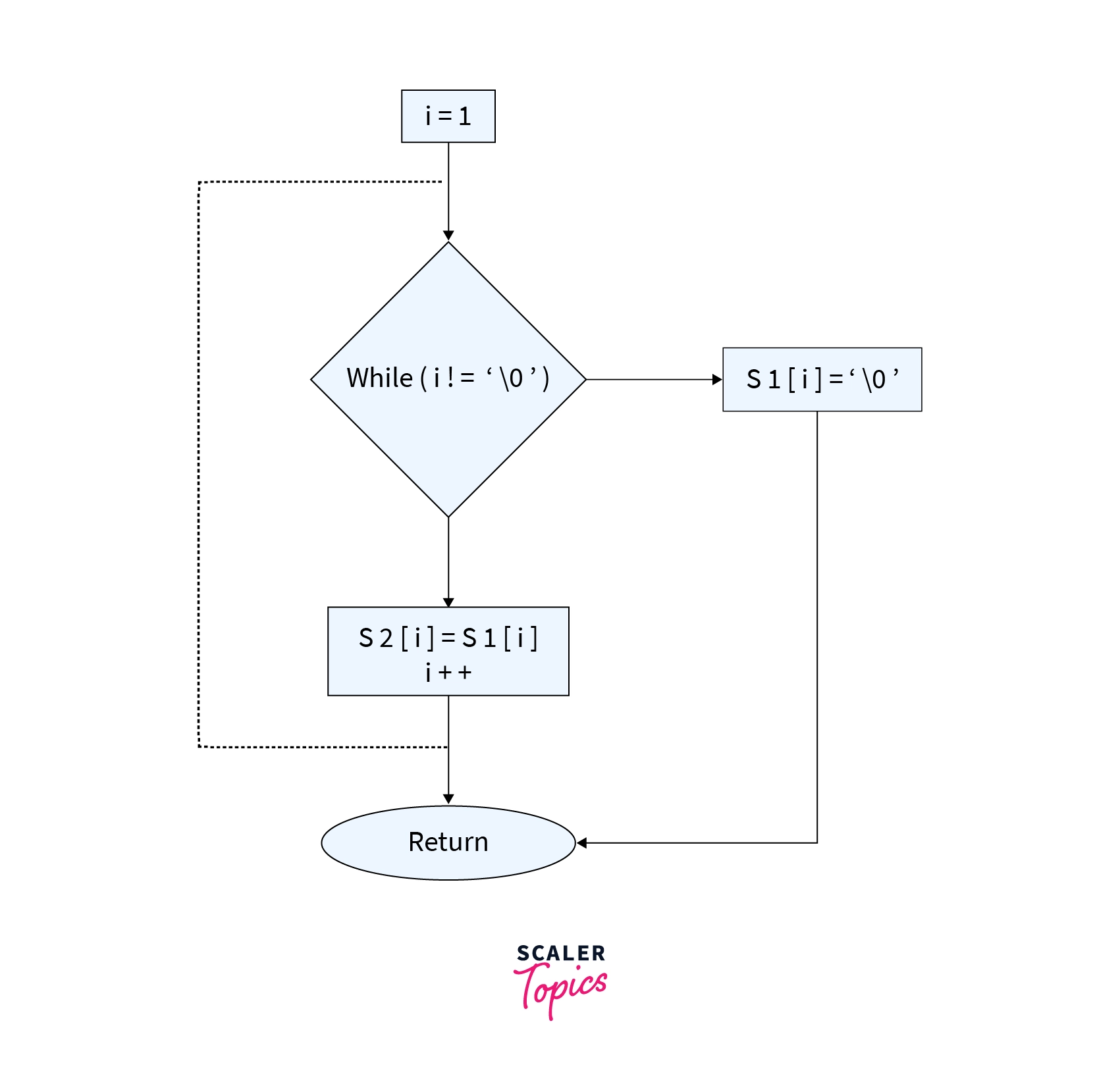
C strcpy() Scaler Topics
The second way is correct. The return value of strcpy () is always the same as its first argument, so your first version is equivalent to: strcpy (s1, s2); s1 = s1; That second assignment is obviously pointless. And it would be invalid if s1 were an array rather than a pointer variable, since you can't assign to arrays.